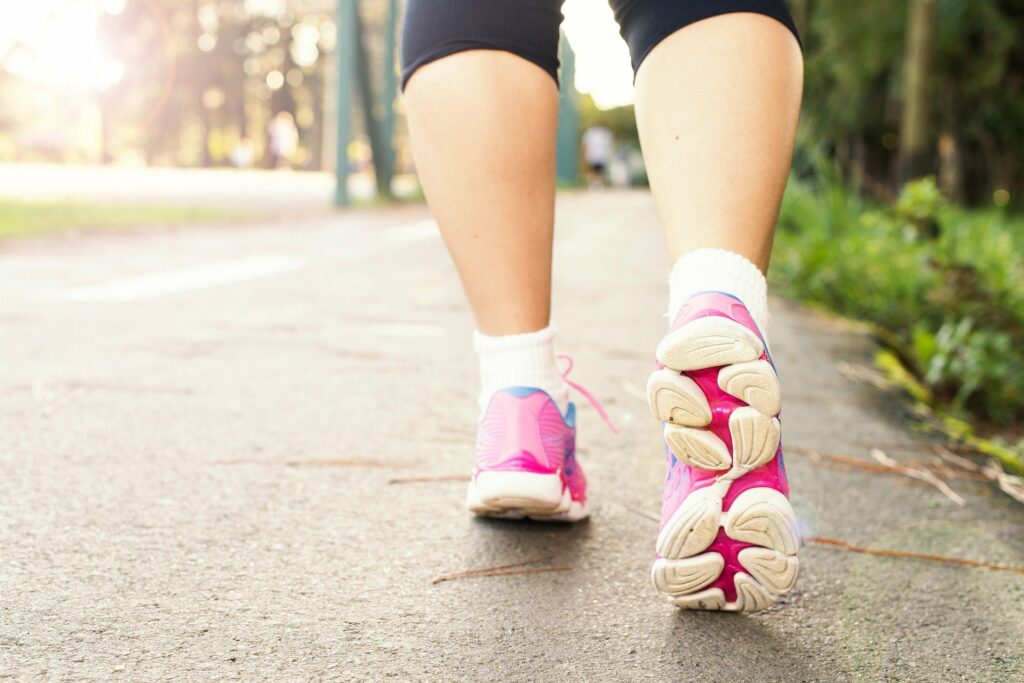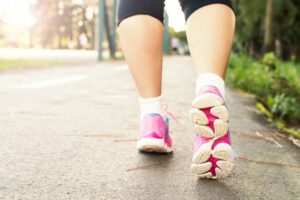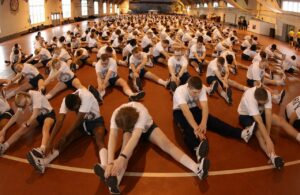9 Reasons why Regular Physical Activity is Important

Regular physical activity is one of the most important things you can do for your health and is a well-established protective factor for the prevention and treatment of the leading noncommunicable diseases, namely heart disease, stroke, diabetes and breast and colon cancer. It also contributes to the prevention of other important NCD risk factors such as hypertension, overweight and obesity, and is associated with improved mental health, delay in the onset of dementia and improved quality of life and well-being.
What is physical activity?

Physical activity can be undertaken in many different ways: walking, cycling, sports and active forms of recreation (for example, dance, yoga, tai chi). Physical activity can also be undertaken at work and around the home. All forms of physical activity can provide health benefits if undertaken regularly and of sufficient duration and intensity.
1. Weight Control
For all the diet rules you follow, fretting over every morsel consumed, the fact remains that unless your body uses up more calories than it gains, weight loss will remain an elusive goal. Exercise prevents the body from putting on weight; for a person who is a healthy weight, exercise plays an equally important because it helps to maintain that weight.
2. Reduced Risk of Type 2 Diabetes
People who are overweight or obese are at a much higher risk of developing Type 2 diabetes. So, regular physical activity that helps you keep your weight in check reduces your risk of this disorder. Exercise helps to keep the body’s systems and metabolism functioning in top gear and this means there is lesser chance of the hormonal disturbances that play havoc with our health.
3. Better Cardiovascular Health
Heart disease is now recognized as one of the leading causes of death all over the world and people with sedentary lifestyles are more likely to be affected. Getting in about 2.5 hours of moderate aerobic exercise every week is all that is takes to cut your risks of heart disease. Exercise has been shown to have a beneficial effect on reducing levels of harmful cholesterol, raising levels of “good” cholesterol and as a result, reduce blood pressure and keep your heart more healthy.
4. Lower Risk of Cancer
Physical activity levels have been found to be linked to the risk of different types of cancer. Specifically, research has shown that exercise can cut risks of breast and colon cancer – two of the most common cancers. A few findings also suggest that people with regular physical activity are at a lower risk for other forms of cancer such as lung cancer and endometrial cancer.
5. Stronger Bones and Muscles
The muscles, bones and joints in our body are constantly under pressure to perform. Irrespective of whether you are sitting, standing, sleeping, walking or running, its these parts of the body that provide you support and enable you to complete your activities. Regular exercise has been shown to strengthen muscles and bones; besides, if exercise helps you lose weight, it also eases the burden on these parts, ensuring they undergo lesser wear and tear.
6. Energy Booster
Regular physical activity helps your body organs absorb much more of the oxygen and nutrients they receive through the blood. This means the body systems can work more efficiently and this directly translates into an energy boost. The stronger muscles and bones also means your body’s endurance increases, so you tend to feel less tired by physical activity.
7. Better Sex
If you’ve been finding your libido flagging, it could be due to a lack of sufficient physical activity. Regular exercise not only boosts your energy levels, it also keeps your reproductive system in good shape, producing sufficient amounts of those hormones that are involved with sexual desire. In other words, if you are looking for something to put the zing back into your sex life, exercise could be the easiest and least expensive aphrodisiac.
8. Better Quality Sleep
Sleep is the body’s time to recuperate from the damage inflicted on it during the day. Inability to fall asleep or stay asleep is often followed by daytime sleepiness and irritability. Over time, lack of sleep can take its toll on your body and lead to other serious health problems. Regular physical activity gets your body into a healthy type of exhaustion that in turn helps you sleep better and deeper to wake up refreshed to face the new day.
9. Freedom from Stress
One of the biggest benefits of exercise is that it stimulates the release of endorphins – the natural mood enhancers secreted by the brain. These chemicals bring about a significant improvement in mood and over time, you notice that exercise makes you feel good about yourself. The result – lesser anxiety, fewer mood fluctuations and a greater threshold to tolerate unpleasant experiences; in simple words, you experience lesser stress.
Merely knowing something does you no good; what’s important to put things into practice. Now that you have come to realize the benefits of exercise, it’s time for some action. Aim at a minimum of 30 minutes of physical activity per day for at least 4 days a week to begin with; go slow and build up your endurance before you take on more strenuous exercise. But before you start any form of exercise, it would be good to speak to your doctor and find out what type of exercise would be best for you. This is even more important if you already have some health problem because the wrong type of exercise can actually cause harm and aggravate your health.
Key facts
- Physical activity has significant health benefits for hearts, bodies and minds
- Physical activity contributes to preventing and managing noncommunicable diseases such as cardiovascular diseases, cancer and diabetes
- Physical activity reduces symptoms of depression and anxiety
- Physical activity enhances thinking, learning, and judgment skills
- Physical activity ensures healthy growth and development in young people
- Physical activity improves overall well-being
- Up to 5 million deaths a year could be averted if the global population was more active
- People who are insufficiently active have a 20% to 30% increased risk of death compared to people who are sufficiently active
- More than 80% of the world’s adolescent population is insufficiently physically active
How to increase physical activity?
Countries and communities must take action to provide everyone with more opportunities to be active, in order to increase physical activity. This requires a collective effort, both national and local, across different sectors and disciplines to implement policy and solutions appropriate to a country’s cultural and social environment to promote, enable and encourage physical activity. Policies to increase physical activity aim to ensure that:
- walking, cycling and other forms of active non-motorized forms of transport are accessible and safe for all;
- labour and workplace policies encourage active commuting and opportunities for being physically active during the work day;
- childcare, schools and higher education institutions provide supportive and safe spaces and facilities for all students to spend their free time actively;
- primary and secondary schools provide quality physical education that supports children to develop behaviour patterns that will keep them physically active throughout their lives;
- community-based and school-sport programmes provide appropriate opportunities for all ages and abilities;
- sports and recreation facilities provide opportunities for everyone to access and participate in a variety of different sports, dance, exercise and active recreation; and
- health care providers advise and support patients to be regularly active.
Content disclaimer
Content on this website is provided for information purposes only. Information about a therapy, service, product or treatment does not in any way endorse or support such therapy, service, product or treatment and is not intended to replace advice from your doctor or other registered health professional. The information and materials contained on this website are not intended to constitute a comprehensive guide concerning all aspects of the therapy, product or treatment described on the website. All users are urged to always seek advice from a registered health care professional for diagnosis and answers to their medical questions and to ascertain whether the particular therapy, service, product or treatment described on the website is suitable in their circumstances. Medimission.com shall not bear any liability for reliance by any user on the materials contained on this website.


